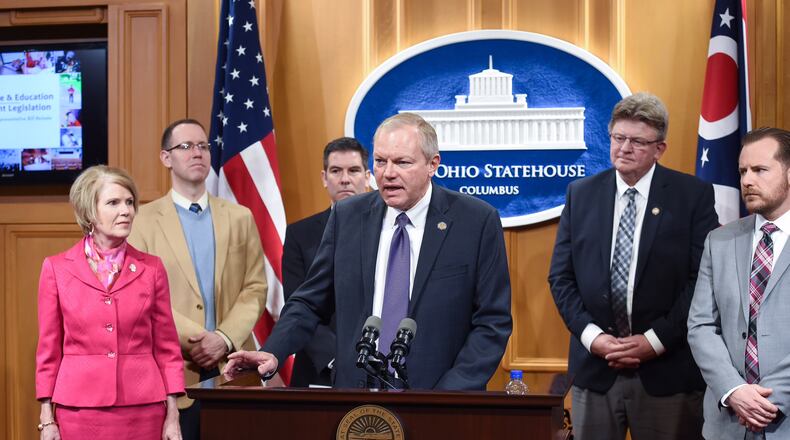Gov. John Kasich spoke in favor of the idea two weeks ago, but with Kasich’s term ending this year, Ohio’s next governor, to be elected in November, might appoint the first director if this bill becomes law. The bill has not yet been assigned to a committee or had any hearings.
RELATED: State board calls for graduation changes
House Republicans argued that a unified, cohesive department would make Ohio more “fluid and flexible” in preparing students to succeed in the future. The bill would give the DLA director authority to appoint deputy directors to streamline policy development and implementation. That would take current policy roles away from the state school board – narrowing the authority of the 19-member body – 11 of whom are elected by the public.
Education stakeholders were varied in their reaction to the bill.
Chad Aldis, vice president for Ohio policy at the Fordham Institute, said creating an agency under the direct oversight of the governor would ensure that governors are publicly accountable for executing Ohio education laws.
RELATED: Dayton “talent hub” plan aims at more than diplomas
“These changes would ensure that our next governor will truly have the ability to shape the direction of education and should result in more coherent policies and greater continuity,” Aldis said.
But leaders of three top school organizations – the Ohio School Boards Association (OSBA), the Buckeye Association of School Administrators (BASA), and the Ohio Association of School Business Officials (OASBO) – voiced concerns with the plan, ranging from the responsiveness of a larger bureaucracy to its ability to manage complex school funding.
“The proposal would move decisions about important topics such as setting the state’s learning standards, graduation requirements for students and school district report cards to a politically appointed staff as opposed to the current process that includes many opportunities for public input,” OSBA Executive Director Richard Lewis said.
RELATED: Schools push students to map their futures
The groups added that the proposed structure could cause major uncertainty for local schools every time a new governor is elected and appoints a new leader.
Greg Edinger, superintendent of two northern Ohio career tech centers, spoke in support of the bill at a press conference Wednesday.
“The focus on workforce and career preparedness at an early age aligns with our district goals and is essential for moving forward and addressing the critical workforce demands our state is seeing,” Edinger said.
RELATED: Schools urged to teach more “soft skills”
Democratic State Sen. Joe Schiavoni, who is running for governor with state school board member Stephanie Dodd as his running mate, called the move a “power grab” by Republicans seeking to weaken the elected state school board.
“There’s no excuse for taking control from Ohio voters and giving it to yourself – especially when it comes to our children’s education,” Schiavoni said.
About the Author

